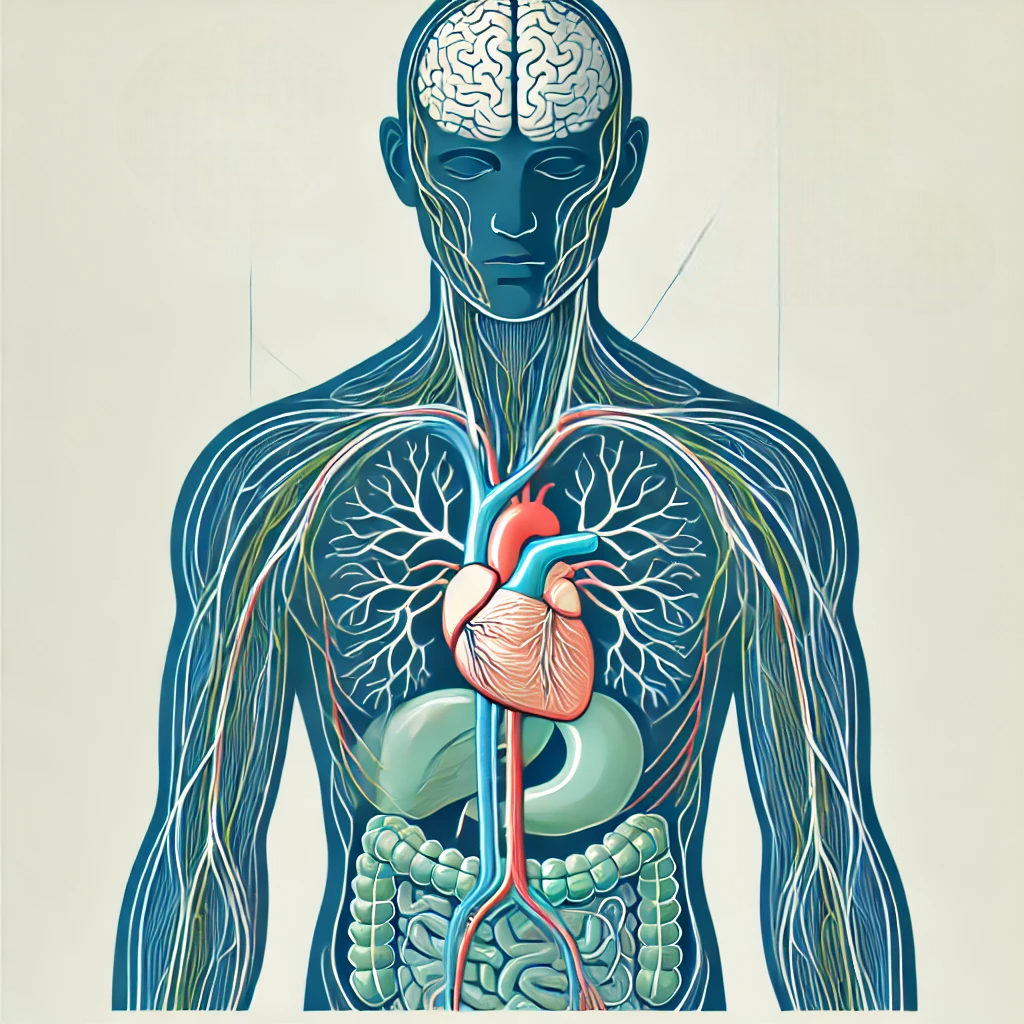Have you ever wondered what helps your body relax and recover after a stressful day? The answer lies in the parasympathetic nervous system, often referred to as the ‘rest and digest’ system.
The parasympathetic nervous system (PNS) is a crucial part of the autonomic nervous system that promotes relaxation, digestion, and recovery. Understanding its functions and importance can help you manage stress and improve overall health.
The PNS plays a vital role in maintaining homeostasis and counteracting the effects of the sympathetic nervous system (SNS). Learning about the PNS helps in appreciating its contributions to bodily functions and how to support its activity.
In this post, you’ll learn about the functions and importance of the PNS and how it compares with the sympathetic nervous system.
Functions and Importance of the Parasympathetic Nervous System
The PNS is responsible for promoting relaxation and conserving energy by slowing down the heart rate, increasing intestinal and gland activity, and relaxing sphincter muscles.
Key Functions:
- Relaxation and Recovery:
- Function: Slows the heart rate, reduces blood pressure, and promotes relaxation.
- Importance: Helps the body recover from stress and maintain a state of calm.
- Digestion:
- Function: Stimulates digestive processes, including the secretion of saliva, gastric juices, and bile.
- Importance: Enhances nutrient absorption and digestion, essential for overall health.
- Restoration:
- Function: Facilitates bodily functions such as cellular repair, tissue growth, and immune responses.
- Importance: Supports healing and strengthens the immune system.
Examples:
- Relaxation:
- Example: After a stressful event, the PNS helps reduce the heart rate and relax the muscles, allowing the body to enter a state of calm.
- Real-World Example: Practicing deep breathing exercises can activate the PNS, reducing stress and promoting relaxation.
- Digestion:
- Example: During and after meals, the PNS stimulates the digestive system to process food efficiently.
- Real-World Example: Mindful eating and chewing food thoroughly can enhance PNS activity and improve digestion.
- Restoration:
- Example: The PNS promotes restorative processes like sleep and tissue repair, crucial for overall well-being.
- Real-World Example: A good night’s sleep activates the PNS, supporting physical and mental recovery.
Comparison with the Sympathetic Nervous System
The PNS and SNS are complementary parts of the autonomic nervous system, working together to maintain balance in the body. While the PNS promotes relaxation and conservation of energy, the SNS prepares the body for action and stress responses.
Key Differences:
- Functions:
- PNS: Promotes relaxation, digestion, and recovery.
- SNS: Activates the “fight or flight” response, increasing heart rate, blood pressure, and energy production.
- Physiological Effects:
- PNS: Slows heart rate, stimulates digestive activities, and promotes calm.
- SNS: Increases heart rate, inhibits digestive activities, and prepares the body for quick responses.
- Activation:
- PNS: Activated during restful and non-stressful situations.
- SNS: Activated during stressful or emergency situations.
Examples:
- Functions:
- PNS Example: After eating a meal, the PNS stimulates digestion and relaxation.
- SNS Example: When faced with danger, the SNS prepares the body to either fight or flee.
- Physiological Effects:
- PNS Example: During meditation, the heart rate slows, and the body relaxes due to PNS activation.
- SNS Example: During a stressful meeting, the heart rate increases, and digestion slows down due to SNS activation.
Recap the functions and importance of the PNS, and how it works in contrast with the SNS to maintain balance in the body.
Understanding the role of the PNS and its interplay with the SNS is crucial for managing stress, promoting relaxation, and improving overall health. By adopting practices that support the PNS, such as mindful eating and deep breathing exercises, you can enhance your well-being and achieve a healthier balance in your life.

